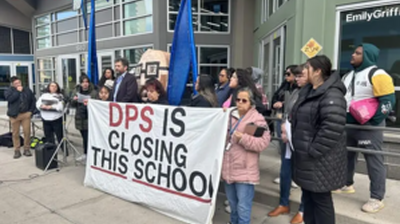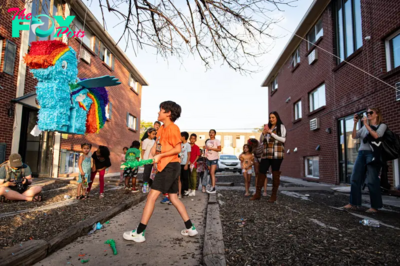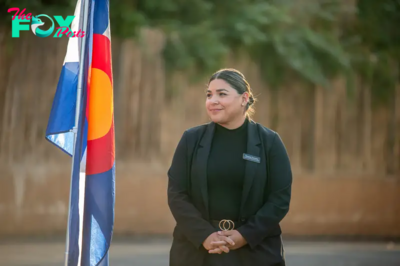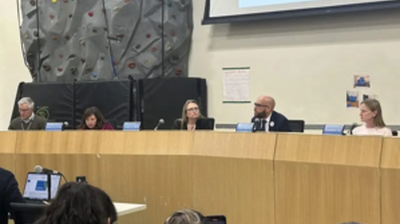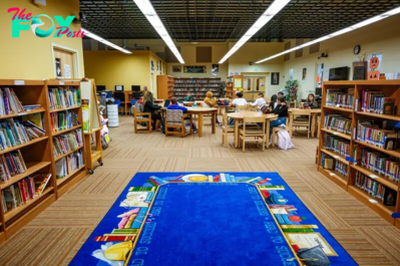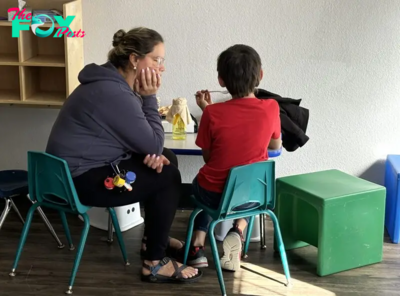Education
Parents have been pushing for better playgrounds for kids with disabilities. Now even small towns are getting in on it.

BERTHOUD — Parents everywhere hear the call of the wild, especially in the summer months, and one of the most common refrains is, “Can we go to the park?”
For many parents it might be a relief, a chance to shoo them out of the house like a miller moth. Yes! Go to the park! But for Lauren Bowling, that refrain is anything but a chance to unwind. It means work. It means nearly two hours in the car. It means a whole afternoon.
Lauren and her husband, Richard, have twin boys they call walking miracles. Miles and Mack had twin-to-twin transfusion syndrome and were week-to-week starting about 12 weeks into her pregnancy, Lauren said, until they were delivered by emergency cesarean section at 28 weeks. The babies scrapped and survived, and the boys are now age 7. Mack is as able-bodied as they come and Miles has no cognitive problems, which gives the Bowlings oodles of gratitude. It really could have been much worse.
But Miles has cerebral palsy and uses a wheelchair to get around. This means not every park will work, including all the available playgrounds in Berthoud, where he lives with his parents, Mack and an older brother, Braxton.
This will change by next spring and possibly a lot sooner, thanks to the Berthoud Adaptive Park Project. The park will be Berthoud’s first inclusive playground of any kind, but this one will be one of the most inclusive in northern Colorado, with a surface he can roll on and swings, monkey bars and a merry-go-round, all adapted so Miles can have fun, too. Berthoud broke ground on the park on May 29.
“The monkey bars are built so kids in wheelchairs can pull themselves through,” Lauren said. “Miles will be able to play on monkey bars with other boys.”
Berthoud launched the park thanks to the Bowlings, who raised money for it with a ridiculously successful lemonade stand (this year’s annual event raised more than $13,000, for a total of $53,000 over four years) and the help of Can’d Aid, a Longmont nonprofit launched in 2013 by craft-brew-in-a-can pioneer Dale Katechis. It also took some haranguing, the kind parents of disabled children learn to do as their offspring grow up enough to explore the outside world and realize some things aren’t the same for them.
Haranguing, even a few years ago, was how inclusive parks were built. Now parks departments realize that an adaptive park doesn’t mean building a ramp so kids can sit in their wheelchair while other kids run by them. Denver, in fact, tries to be inclusive with every new park.
“Now people are realizing that accessible is not inclusive,” said Juliet Dawkins, who started LuBird’s Light Foundation with Jason, her husband, for their daughter, Lucia, after her nickname. “Even if you have a smooth surface, a wheel-able surface, if you don’t have a piece of equipment for them to play on, what’s the point?”
Most of Colorado’s larger cities have at least one inclusive park, and the movement is trickling down to towns such as Berthoud, with a population of 12,000.
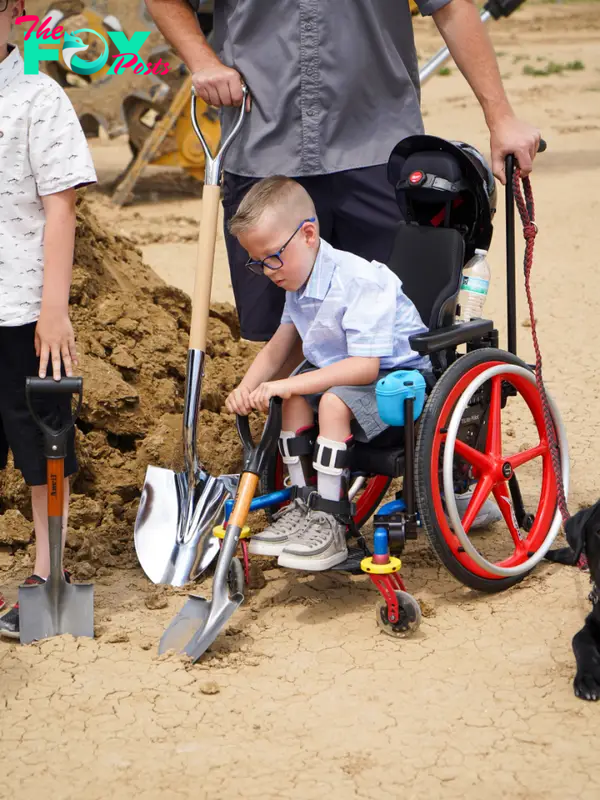
Yet parents still need to show up, speak up and make sure they are heard, Bowling said, despite emphasizing in her speech at the groundbreaking that she couldn’t have done it without the help of many others. She had to help push community fundraising for the park toward its $1.6 million goal, after all.
“There were times I got intimidated by our grand goal, and anytime that happened, someone in the community reached out and would reinvigorate me,” Bowling said. “But I don’t think it would have happened without me pushing. It feels gross to say that, because so many helped lift me, but no, I don’t.”
Where you belong (really)
This year’s theme of the National Recreation and Park Association is “Where You Belong.” That’s intentional, said Kara Kish, director of parks and recreation for the city of Loveland.
“A lot don’t feel they do belong,” Kish said. “But in the last five years, universal access has been the new standard. The primary drive is the commitment to be in service to everyone.”
Cities across the country, including Loveland, Denver and many others, have revamped their recreation departments to not only offer programs specifically for those in disabled communities but adjust any class or sport to make it accessible if someone requests it.
Parks are a harder commitment, but they are working on it. Loveland’s spent the past decade, Kish said, to make all its parks compliant with the American for Disabilities Act.
ADA standards, however, aren’t always fun, and that’s why parks departments are looking beyond them. Loveland broke ground April 22 on the 160-acre Willow Bend Natural Area and Universal Access Playground, which will feature the city’s first universally accessible playground — 12 acres. Loveland hopes it will be ready by spring.
“Universal access goes beyond physical limitations,” said Bryan Harding, Loveland’s parks and recreation planning manager. “It runs the whole gamut. We won’t have everything for everybody but we will have something for everyone.”
The park will feature play equipment designed to be used with other people, with a concrete slide, for instance, that’s extra wide and doesn’t cause static that can knock out pacemakers and bother those with hearing difficulties, as well as bathrooms with oversized stalls and adult changing tables. There will be tools for sensory play as well, which can be soothing for those with autism and other similar issues. There’s even charging stations for mobility devices such as electric wheelchairs.
-

 Education2d ago
Education2d agoWhat would it mean if President-elect Trump dismantled the US Department of Education?
-

 Education5d ago
Education5d agoPhiladelphia students have a new reading and writing curriculum − a literacy expert explains what’s changing
-

 Education5d ago
Education5d agoWhy school police officers may not be the most effective way to prevent violence
-

 Education1w ago
Education1w agoCampus diversity is becoming difficult to measure as students keep their race and ethnicity hidden on college applications
-

 Education1w ago
Education1w agoFederal judge rules that Louisiana shalt not require public schools to post the Ten Commandments
-
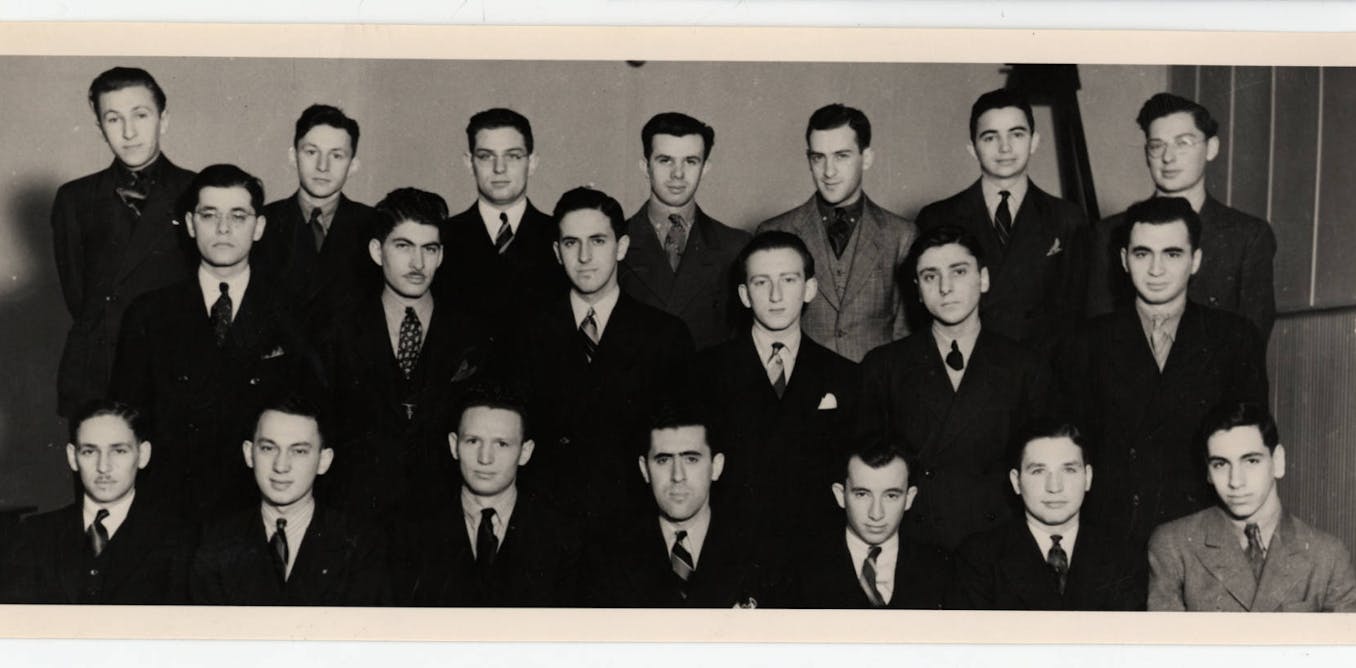
 Education1w ago
Education1w agoCampuses are ground zero in debates about antisemitism − but that’s been true for 100 years
-

 Education1w ago
Education1w agoSocioeconomic status explains most of the racial and ethnic achievement gaps in elementary school
-

 Education1w ago
Education1w agoMothers, metaphors and dyslexia: What language reveals about the challenges of a child’s learning disability
